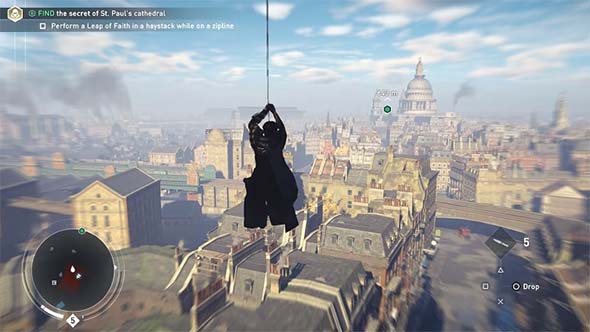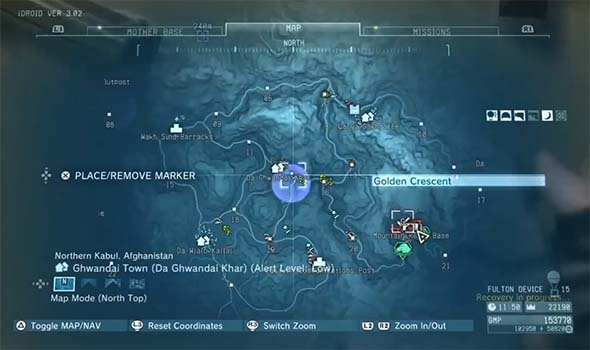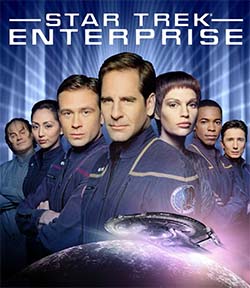Last time, I discussed what I perceive as a problem in the way that most open world games (specifically, sandbox games) design their maps and use the space that the maps offer - or fail to use that space, to be more specific. So many open world maps end up feeling less like actually playing the game, and more like a convoluted mission-select and collectible checklist screens. This problem is especially bad in the Ubisoft model of design, and is also a problem (to a lesser extent) in Bethesda's open worlds. Due to the popularity of these developers' franchises, many other developers have been cloning these styles of games to one extent or the other, to the point at which Ubisoft's open world model seems to be the go-to template for any developer trying to make an open world game. These games aren't necessarily bad. They just aren't very good at making the space of their maps feel meaningful in its own right.

Many open world games have large, expansive maps that mostly feel empty and pointless,
as the player rushes through them simply to get to the next map marker or checklist item.
But now that I've established what I see as a problem, I want to focus on positive feedback. In this discussion, I'm going to look at a handful of games that should serve as inspirations for would-be open world developers. Ironically, some of these games aren't even open world games, but they still pose valuable lessons for how games that are open world could better use their game spaces. That isn't to say that the games discussed here are perfect. In fact, many of them have their own major flaws. But each of them has some element of design that utilizes the actual game map as a component of active play, rather than just a space in which game sequences exist. First, let's take a look at a game that was re-made recently, and use it as a "before and after" case study of map design... [More]
75d0658b-0278-43f3-a9e5-d3df3d01939d|4|4.3
Tags:open world, map, traversal, travel, cartography, geography, narrative, ludonarrative, ludonarrative dissonance, quest, vehicle, driving, racing, exploration, wasteland, survival, resources, Ubisoft, Bethesda, Resident Evil, Metal Gear Solid V: the Phantom Pain, Assassin's Creed, The Elder Scrolls, Skyrim, The Witcher 3, Grand Theft Auto, Grand Theft Auto V, Grand Theft Auto: San Andreas, Shadow of Mordor, Fallout, Fallout: New Vegas, Wasteland 2, Mad Max, Miasmata, Assassin's Creed IV: Black Flag, Burnout: Paradise, Shadow of the Colossus, Dark Souls
I wrote a lengthy blog late last year about the stagnant, "limbo"-like feel of most open world games' narratives. I had written that blog mostly before I played Metal Gear Solid V, and so I wasn't able to incorporate my thoughts regarding that game into the blog. But I did come to a new realization about open world gaming while I was playing MGSV. In my review of that game, I noted that:
"Even the open world itself feels constrained, as sheer cliffs prevent you from travelling too far off of the roads and serve to functionally railroad the player towards the small set-piece outposts and villages."
- from my Metal Gear Solid V: the Phantom Pain review
I realized while playing MGSV that the game had built this large, open world (well, two large, open worlds really, but I hadn't gotten that far yet), but it didn't really care to let the player actually traverse that space or use it in any meaningful way other than scavenger hunting for collectibles. At least those collectibles felt relevant to gameplay though! Roughly half the map is dead space that the player can't even access. There was also this strange focus on using the helicopter to drop in and drop out of missions, rather than actually living in the game world, as the character had to do in Snake Eater. The map started to feel less and less like a place, and more like a convoluted mission-select screen. At first, this seemed like a strange, isolated example of an open world game that really doesn't want the player actually exploring its world. But as I thought about it, I realized that this isn't really a new phenomenon; it's actually just a very extreme example of what has become a sort of defacto state in most open world games.

The Afghanistan map of Metal Gear Solid V feels heavily constrained by sheer cliffs.
Think about it this way: in a linear game with rooms and corridors, every hallway and room should serve some purpose or function. In most games, this function will be some kind of skill or system mastery test. An action game like Devil May Cry will throw enemies at you to fight; a puzzle game like Portal will have a puzzle (or a piece of a puzzle) in the room to solve; a stealth game like Metal Gear Solid 3 will have a sneaking challenge or obstacle to pass; and so on. In the best games, each of these challenges will also provide a unique or novel test of skill or system mastery: unique combinations of enemies, unique puzzles, or novel arrangements of enemies and obstacles. Other games can use those rooms for thematic or narrative purposes. A survival horror game like Resident Evil or Silent Hill will usually put enemies, puzzle items, or supplies in a room, but some rooms might instead contain a scripted scare. In some cases, a room might even be left completely empty in order to build some kind of tension or anticipation, or to delay the release of already-built tension or anticipation.
So what is the gameplay purpose of an open world map? ... [More]
d6e62cdb-b171-437a-b1a7-107859c9c818|4|4.5
Tags:open world, sandbox, game design, map, paradox, traversal, travel, cartography, geography, narrative, ludonarrative, ludonarrative dissonance, quest, exploration, driving, racing, vehicle, Ubisoft, Bethesda, Beenox, Metal Gear Solid V: the Phantom Pain, Assassin's Creed, the Amazing Spider-Man, Spider-Man, web-swinging, The Elder Scrolls, Skyrim, The Witcher 3, Fallout, Mad Max, Far Cry

Recently, I brainstormed the possibility of redesigning Beyond Earth's winstates in order to support cooperative victories. With Civilization VI having been announced last month, I want to take some time to look at some different ways to approach victories in the mainstream Civilization games. Since Civilization III, there have been five victory types that have appeared in every mainstream Civ game:
- the military victory = kill or conquer everyone else
- the science victory = build a space ship to Alpha Centauri
- the culture victory = accumulate the most culture yield (usually through wonders)
- the diplomatic victory = vote for yourself to be leader of the United Nations
- the score victory = if no other victories are met by a certain number of turns, the civ with the highest score wins.
Earlier games had fewer victories (only military and space race), but there have been other victory types as well. Civ III and IV had a victory that simply required the player to occupy a majority of the map's land area and population (which could be achieved via military conquest and/or relatively peaceful expansion). I liked this victory type because it facilitated role-play by allowing me to grow my empire organically without having to feel like I was constantly meta-gaming for one of the other victories - just keep growing by whatever means are necessary or convenient. Civ IV also had a religious victory that required you to convert other players to your religion and then get them to elect you to be Pope or whatever. Civ: Revolution and the board game even included an economic victory in which you must accumulate a certain amount of wealth tokens. This was different than the "economic victory" of Civ V, in which you save up enough money to buy out the alliance of every city state on the turn before a U.N. election.
Civilization IV included a religious victory [LEFT], and the board game includes an economic victory [RIGHT].
These victories are intended to provide a direct path to victory using each of the major fundamental gameplay styles. But are there other methods?... [More]
a7731900-5994-464b-bc32-bb3d6884e093|1|5.0
Tags:Sid Meier's Civilization, Civilization, Civilization V, Civilization VI, victory, military, science, culture, diplomacy, religion, high score, economy, peace, war, cooperation, humanism, humanist, alliance, ideology, space race, United Nations, world wonder, agenda, leaders, Theodore Roosevelt, board game, victory point, Ed Beach, Sean Bean, E3, Settlers of Catan, The Sims 2, Sid Meier's Civilization the Board Game

I started writing this post months ago (back in 2015, I think) - long before I had any inkling of the impending release of Civilization VI. This post may be entirely moot now that Civ VI has been announced, and it seems unlikely to me that Beyond Earth will see further expansions. However, I still want to present these ideas, so I've re-written this post to be less speculative and more retrospective. Even if these ideas aren't fated to be implemented for Beyond Earth, it's still an opportunity to look at a way in which the game could have differentiated itself from Civ V, and they could serve as a template for future Civ titles (maybe even Beyond Earth 2) or for modders. Maybe I'll even mod it in myself if I get time and motivation.
Civilization: Beyond Earth really struggled to separate itself from Civ V. The expansion, Rising Tide takes steps to address this with some of its new gameplay mechanics and revised diplomatic engine. Sadly, these efforts don't really address one of the underlying, fundamental, disconnects that the game has with me:
"One of the things that bothered me about Beyond Earth was the way that the victory conditions create an unnecessary competition between the different civs. Aren't we all just colonists from the same earth who are supposed to be trying not to repeat the mistakes of the past? Aren't we trying to preserve the human race? Without the various civs starting the game with any sort of pre-established ideology or agendas, there's no reason for them to be competing with one another. Without a genuine shared victory, there's also no systems in place to share your colonial success with your fellow colonies. The net effect is that once you've defeated the challenge of taming the planet and [one way or another] eliminating the aliens as a threat to your expansion, then the rest of the game is a competition between civs to be the first to reach any of the [mechanically satisfying and varied, yet intellectually vapid] victory conditions."
- from my Rising Tide review

Heck, why are we competing to begin with?
Despite being mechanically different from Civ V's victory conditions, Beyond Earth still fell into the trap of being fundamentally, unnecessarily tribalistic and competitive. I don't know if this is supposed to be some kind of sad, fatalist message that Firaxis is writing into Beyond Earth: that we are doomed to repeat the mistakes of the past. This isn't Fallout. I hope that Firaxis' designers aren't that cynical, and that it was an unintentional emergent consequence of design.
This may seem like a small, trivial, superficial issue, but it's not. Regular Civilization is easy to buy into because it's based [loosely] on established history and uses real-world characters and states that most people are already familiar with. Buying into the theme of Beyond Earth is just so much harder because there's so much of the game that just doesn't make sense, or which doesn't really follow from the opening cinematic or the game's flavor text. This is why Alpha Centauri went to such great pains to personlize the leaders, and to turn them into charicatures of established real-world ideologies and standard sci-fi tropes. These are factions with established goals and agendas that we can understand, and we can buy into their conflicts. Beyond Earth doesn't have that, and so not only do its leaders fall flat as characters unto their own, but the entire basis upon which the game's core conflicts and victory conditions are based start to fall apart as well.
In any case, I think that one of the best ways that Beyond Earth could have truly separated itself from Civ V (mechanically and thematically) would have been to change the competitive nature of the victories and introduce truly cooperative victories, or maybe even a "players versus map" victory type. And I want to emphasize from the start that I haven't put nearly as much time into Beyond Earth as I have into Civ V. I'm by no means an "expert" in the game. So feel free to take the following suggestions with a grain of salt. I admit that these ideas simply might not work, but I still think that it's worthwhile to explore the possibility space that this game could have offered... [More]
41c56220-e572-46c7-b911-40df5b0b6ab2|1|5.0
Tags:Sid Meier's Civilization, Civilization: Beyond Earth, Civilization: Beyond Earth: Rising Tide, Firaxis, 2K Games, PC, Steam, strategy, grand strategy, turn-based strategy, science fiction, space, victory, cooperation, alliance, harmony, purity, supremacy, contact, first contact, domination, board game, Battlestar Galactica, Pandemic, Arkham Horror, Mansions of Madness, Descent: Journeys in the Dark

Star Trek: Enterprise is a very divisive topic among Trekkers / Trekkies. Personally, I'm not a big fan. It was a perfectly adequate space adventure TV show, but just never quite worked as hard science fiction for me, let alone as "Star Trek". There were certainly some stand-out good episodes. The haunted space station of "Dead Stop" and the mirror universe antics of "In a Mirror, Darkly" being among my favorites. The annoying thing is that the show made several mistakes at very fundamental levels before it even got off the ground. I could have lived with the show being a prequel, but the efforts to make the show seem both futuristic to the viewing audience, but also less advanced than the (then 40-year-old) original series put the show in an awkward juxtaposition with established series continuity. The hackneyed time travel meta-plot certainly didn't help.
"Juxtaposed" is an excellent way of describing Enterprise as a whole. It's a show that simultaneously seemed ashamed of its "Star Trek" name (remember, it premiered with the title "Enterprise", and "Star Trek" was only stapled back on in later seasons), while also indulging in needless - and sometimes cringe-worthy - fan service (such as the appearance of the Borg, Ferengi, and the entire episode "In A Mirror, Darkly"). It wanted to distance itself from established Trek tropes, but also brought back many of the same technologies, concepts, and character archetypes (simply renaming many of them). It set itself at the cusp of development of advanced science fiction technologies, but completely waffled when it came to telling hard science fiction stories about those technologies. It wanted to be simultaneously a prequel and a sequel via its contrived time travel premise. It was this lack of confidence and true vision that really killed this show.
The science of future technology
The show made the mistake of trying to present a Star Trek setting that was less technologically advanced, but still went ahead and gave the crew access to stand-ins for all the established trek technologies. They tried to make the Enterprise itself feel more like a contemporary submarine with its confined spaces, but it never really felt different. There was "hull polarization" instead of shields, and "phase cannons" instead of phasers. Different names, but same basic concepts that were used in exactly the same manner. The crew didn't start the show using more contemporary-seeming projectile weapons - not even a futuristic projectile weapon like a rail gun - before transitioning to purely energy-based weapons. The Enterprise didn't have to be equipped with any kind of futuristic chaffe in order to misdirect hostile targeting scanners, nor did it use point-defense to destroy incoming missiles.
"Phase pistols" and "polarized hull" were just lazy stand-ins for phasers and shields.
The only pieces of tech that the show really held off on (and were relevant to narrative) were the universal translator and transporters. The translator was rarely an issue since Hoshi was practically a Babel Fish. The transporter was there, but it was not trusted to reliably transport living things - even though it had been verified as safe by the beginning of the first episode and was successfully used in that episode. So for most of the show's run, the crew used shuttle craft for away missions, but the transporter was always there just waiting to act as a deus ex machina to get the crew out of a sticky situation (which, of course, happened on multiple occasions - including the premiere).
The fact that these technologies were already in place made the show feel too similar to other Trek series, even though it desperately wanted to feel distinct. But it also prevented the writers from exploring some of the more interesting issues inherent to the development of these technologies... [More]
da55494b-5a7b-4e89-b139-99295c419ad0|2|3.5
Tags:Star Trek, Star Trek: Enterprise, Enterprise, mirror universe, Terran Empire, Jonathan Archer, Borg, Ferengi, Xindi, time travel, xenophobia, science fiction, technology, transporter, phaser, universal translator, Heisenberg Compensators, artificial gravity, centrifugal force, space, allegory, Zefram Cochrane, Star Trek: First Contact, first contact
|

| 12 | | | | | | | 60 | | 11 | | | | | | | 55 | | 10 | | | | | | | 50 | | 09 | | | | | | | 45 | | 08 | | | | | | | 40 | | 07 | | | | | | | 35 | | 06 | | | | | | | 30 | | 05 | | | | | | | 25 | | 04 | | | | | | | 20 | | 03 | | | | | | | 15 | | 02 | | | | | | | 10 | | 01 | | | | | | | 05 |
|